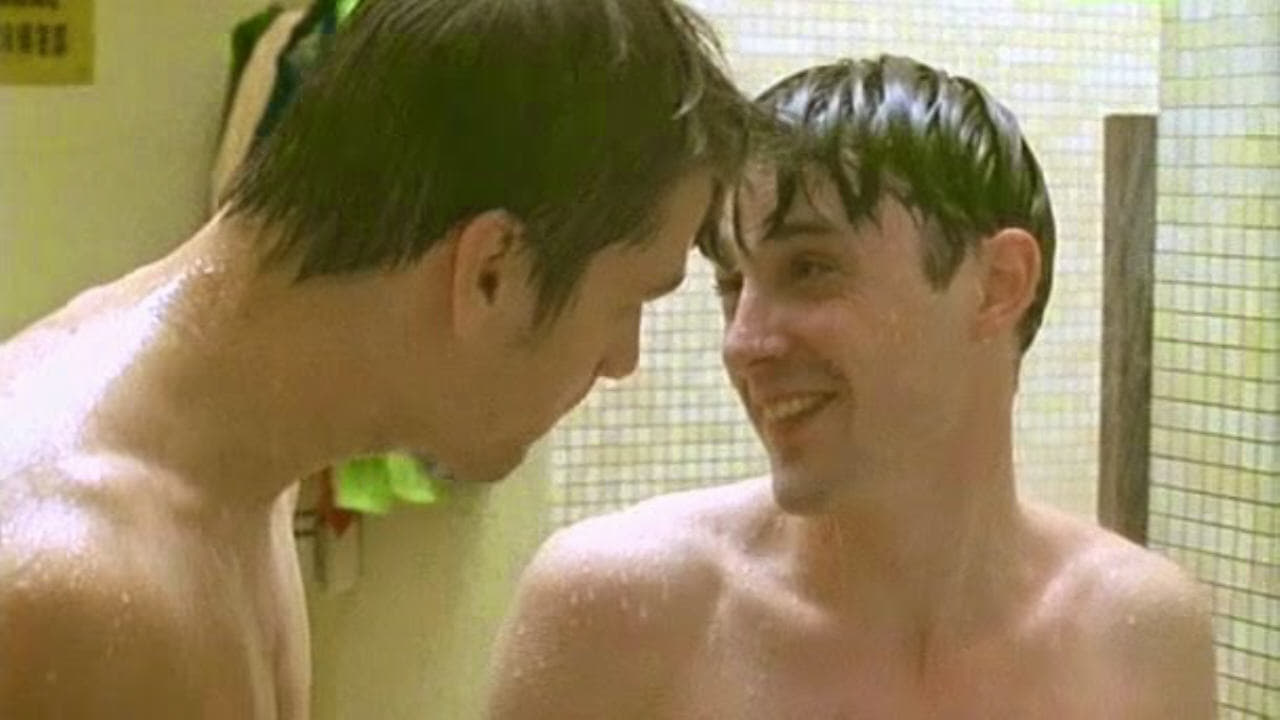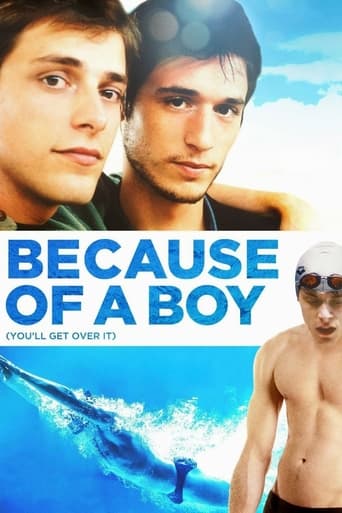

About the love in the nuances of a teenager's life. About rules and shadows of a gesture, about the holes of public image, about victory and the freedom. Complicated and subtle, delicate and naive. Slice of a coming up in the silk of happy-end. Not a movie about gay condition but about choices, expectation and the inside solution. About a boy and his fragile world. About the small gestures as circle of stones.A drama, an answer or a Chopin fragment. Every definition is OK. It is not spectacular and not river of solutions. May be a confession. But every eye, every mind discovers another thing. So, only a film. French, like a summer morning. Madlene, piece of loisir, strange subject. Or only section in a life way. Ordinary world and the end like part of very old story.
... View MoreWell, we've seen this same story how many times now? But this film is a sensitive and realistic retelling. Well-written, -acted, and -executed. I was moved, and what's more important than that? Some minor drawbacks: (1) the soundtrack is an atrocious, Casio-quality distraction better suited for porn; (2) speaking of porn, I have no objection to nudity, but it seems strange that all the sex scenes are heterosexual in a gay-themed film, and (3) the subtitles are terrible. Even with my limited French, it was clear that a lot of meaning is lost in the translation. And, for an American the very British-English subtitles are jarring in a film about teens (lots of "fancy that, chap"). Do English teens talk like that? I noticed a lot of French slang, but the translation is stilted and, well, British. Worth a rental.
... View MoreYOU'LL GET OVER IT is yet another in a wave of French coming out films to hit the American video market. They all seem to cover familiar territory - even overlapping in specifics at times - but each has a unique point of view. This is another teleplay for French TV, coming two years after JUST A QUESTION OF LOVE, which set a pretty high mark for the genre. Here, a high school swim team champ named Vincent is 'outed' (somewhat inadvertently) by a guy who seems infatuated with him, but unable to get a proper handle on his own feeling (conveniently, for the script). The story may or may not be autobiographical because both the lead character and the script writer share the same name (even surname). While the parents in JUST A QUESTION OF LOVE reacted as if their son had murdered babies, Vincent's parents shrug their shoulders and 'get over it' in just a few frames. This leaves the storyline to Vincent's own 'coming to terms' with his sexuality, which (turns out) isn't all that novel or (sadly) dramatic.The film also seems to have no problem with showing Vincent's carnal relations with his 'girlfriend' Naomie, but shies away from any overt sexual contact between Vincent and boys. Pandering to a hetero audience? Absolutely. The author conveniently relies upon the 'swim team' setting for it's share of male titillation, a tact much more successful employed in THE MAN I LOVE (1997). The closest kin of this film seems to be the English GET REAL, which was far more skillful in relating to it's central figure than OVER IT. Vincent's true personality remains a bit unexplored and the script doesn't do much to help. Worth seeing - especially in context with the other films mentioned - but don't expect too much. If you do, well -- you'll get over it (you'll see).
... View More"You'll Get Over It" ("À Cause d'un garcon") isn't half the film Téchiné's "Wild Reeds" is. But precisely because it works on a smaller canvas and is basically limited to the gay coming out theme, it has a special appeal for the gay audience. The film has had minimal distribution in the US, but will do well on the rental market. You have to admit that though it's nice to have a straightforward French coming out film, this one doesn't deal with the issue of the public image in school as firmly as the English "Get Real" does, nor does it deal with all the social and personal and physical issues of coming out as well as the American 'Edge of Seventeen' does. Nonetheless it does contain some peculiarly French aspects that give it special interest.Though Benjamin (Jérémie Elkaïm), -- the provocative, sexy boy who tempts Vincent (Julien Baumgartner) to kiss him, then pulls back and the next day meanly outs him -- isn't the main character, he certainly is the deus ex machina, and hence the French title, "Because of a Boy," does make more sense. Besides, at the end Benjamin is about to become Vincent's new lover.The old lover invites Vincent to come meet him at a gay bar in the Marais, and that attempt to master a gay scene and acquire a genuine gay support group is a terrible failure. The bar is depicted as a real meat rack where the young, fresh Vincent is seen purely as "merchandise." There's no hope of camaraderie, and Vincent flees in horror. A complete contrast to the trajectory of "Edge of Seventeen" and "Queer As Folk," in both of which the ingénue's finding a niche in a gay community is a major element of his successful coming out process. It's pretty pathetic that in a French school they don't know the word "gay" yet, and everybody refers to Vincent as a "pédé," which comes from pédéraste and suggests a child abuser, but has to be translated by its closest equivalent in the context, "fag." French attitudes may have their limitations, but Vincent hasn't got it so bad. He's a swim team star. He has a cute girlfriend and a straight best friend who both remain loyal after he's outed. The girlfriend, Noémie (Julia Maraval), being French, has no illusions once she's been disillusioned, that is -- but, being French, is able to provide plenty of rational conversation to help Vincent understand what's going on in his life. She's also the one he runs to for consolation after each of his mini-crises. (The girlfriend in "Edge of Seventeen" also had conversations but they were a tad less rational.) The toughest part of the whole process for Vincent, perhaps, are the rebuffs and mean behavior of Benjamin, and above all the cruel rejections he gets from his mates on the swim team, which almost force him to withdraw from competition. Vincent's resentful "chaumeur" (jobless) brother is really resentful not so much of the gayness but of all the attention Vincent gets no matter what's going on with him.An interesting side issue also something typical of the French milieu, is Vincent's literature teacher. The man, who comes across as soulful and cool in class, and whom the other faculty members may correctly guess is gay, nonetheless is closeted, and when he's asked to try to counsel Vincent, absolutely refuses; later he approaches Vincent clandestinely (you'd think they were spies) to admit how he is and offer odd, furtive encouragement.It's the straight swim coach who brings Vincent out of his funk on the basis of neutrality: "chacun à son gout" is his guiding principle: "Let's leave our personal lives out of this; we have a job to do: we want to win." Isn't this, also, a typically French approach -- not affirmative action but the live-and-let-live philosophy? As for Vincent's parents, they're splendid. Both declare that they love him no matter what, and even go so far as to timidly inquire if some day he will 'live openly with another man.' How often has this come up in a gay coming out film? The French think ahead. Of course, Vincent, who's pretty confused, can't really answer them yet. He still half wishes he could stick with Noémie, whom he's just had sex with for the first time when Benjamin outs him. Poor Noémie; a quick fling with Vincent's best friend lacks magic, and she winds up going off to be an au pair girl in America, fearing that the food will make her turn into a blimp. Everything is really a bit too easy in "You'll Get Over It." He "gets over it" way too quickly. But despite the claims of mainstream writers who profess to be utterly bored with multiple treatments of it, the gay coming out experience is still new enough on screen to need treatments for each language and each milieu, and this one deserves its small place in the canon.
... View More